Member of the Month: Sameera Nayak
Margaret Hicken, Kate DuchownySameera Nayak is a doctoral candidate at Northeastern University in the Bouvé College of Health Sciences. Her research focuses on the structural climate of immigrants in the US and domestic violence. You can follow her on Twitter @Sameera_Nayak or email her at nayak.sam@northeastern.edu.
Welcome, Sameera! To get started, can you tell us a little bit about yourself?
Sure! Thanks for having me Kate and Maggie. I am currently finishing my PhD in Population Health at Northeastern University. My background is in mental health research and I thought I was going to do a PhD in clinical psychology and go that route. But I realized that clinical work was not a good fit for me, so I made the switch to public health — a much better fit. I’m from India and moved here in 2010 to pursue my undergrad at UCLA. I honestly didn’t intend to stay on but as things worked out I’m here for good now! My background has really informed my dissertation work because it’s about immigration. Specifically, my dissertation research is about immigrant women’s health, and I’m looking at intimate partner violence and preterm birth. I am planning to defend in June and my mom is coming in from India!
What an important research topic and how wonderful that your mother will be coming! Your dissertation sounds very interesting. Can you say more about it?
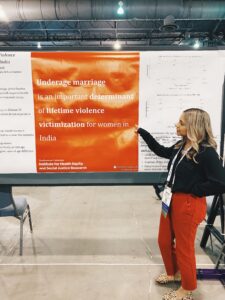 Yes, so it’s a mixed methods dissertation. I have two studies where I’m using secondary data, and one study where I collected my own data so that was really exciting! In one study, I applied some more advanced causal inference methods to better our understanding of immigration status and domestic violence (DV). Probably the thing that I’m most excited about is that I worked with a local organization in Boston that addresses domestic violence, Casa Myrna, for my own data collection. I was lucky to have received a seed grant from the Boston Area Research Initiative to carry out this work. Casa Myrna runs the Massachusetts statewide domestic violence hotline that anybody in the state can call if they have a DV issue. So we worked together and developed a study where I was able to ask questions that were of research importance to me as well as address questions that they had about the clientele that they serve. They sent out a survey to their clients who were immigrants around how they perceive the immigration climate and how it informs their decision to seek help. I also conducted focus groups with staff members to understand how the policy climate affects the work that they do with their clients who are immigrants. As it turns out, they serve a lot of DV survivors who are undocumented. This group is at particular risk for DV-related poor health outcomes, because they’re excluded in many ways from systems that they can seek support from, and because the immigration policy climate can really affect the ways in which they can safely seek help.
Yes, so it’s a mixed methods dissertation. I have two studies where I’m using secondary data, and one study where I collected my own data so that was really exciting! In one study, I applied some more advanced causal inference methods to better our understanding of immigration status and domestic violence (DV). Probably the thing that I’m most excited about is that I worked with a local organization in Boston that addresses domestic violence, Casa Myrna, for my own data collection. I was lucky to have received a seed grant from the Boston Area Research Initiative to carry out this work. Casa Myrna runs the Massachusetts statewide domestic violence hotline that anybody in the state can call if they have a DV issue. So we worked together and developed a study where I was able to ask questions that were of research importance to me as well as address questions that they had about the clientele that they serve. They sent out a survey to their clients who were immigrants around how they perceive the immigration climate and how it informs their decision to seek help. I also conducted focus groups with staff members to understand how the policy climate affects the work that they do with their clients who are immigrants. As it turns out, they serve a lot of DV survivors who are undocumented. This group is at particular risk for DV-related poor health outcomes, because they’re excluded in many ways from systems that they can seek support from, and because the immigration policy climate can really affect the ways in which they can safely seek help.
So important! Your work sounds inherently interdisciplinary. What would you say are the disciplines that most inform the work that you do?
That’s a tricky question to answer because I feel like population health inherently draws on so many different fields. I’d say I engage with social epidemiology the most and I’ve done a lot of reading in sociology since so much immigration work has actually been conducted by scholars in that field. I feel like now immigration health research is starting to use more social epi methods so I would say those are the two [social epidemiology and sociology] are the two big disciplines that inform my work the most.
You recently secured a faculty position– Congrats! Where are you heading?
Yes! I’m going to be at the University of Maryland, Baltimore County in the Department of Sociology, Anthropology and Public Health. I’m very excited!
The job market can be difficult to navigate. Do you have any advice? Anything you wish you had known?
I think the big thing I wish I had known was to be strategic earlier on in my PhD journey. When I started my PhD I was like “I want to be a professor!”. I think a lot of people do that. And then once I was in the program I was so focused on the degree itself that I didn’t think about publications, teaching philosophy, etc. early on. I was really lucky that last spring summer, I was able to attend the Future Faculty Workshop which is co-hosted by Northeastern, Harvard, and UMass Amherst. And so that forced me to come up with research and teaching statements earlier than I thought I would need them. But it was probably the perfect time because when I ended up on the market, I actually had drafts of these statements ready to go! I also learned about different types of universities, teaching loads, or what you’re teaching philosophy should look like. Negotiating the offer was probably the most complicated part because you can ask for tons of things and there are so many different approaches to successfully navigating this phase. There’s so much “hidden curriculum” in the academic job market and so I always tell people to go to the FF workshop since it’s so worth it, especially for those of us who don’t have friends or family who have pursued a PhD or graduate degree before!
I think the other really good piece of advice I got was — and this is likely field dependent, of course — to apply early on for positions that are a good fit, and then if it doesn’t work out, you can explore other options like a postdoc. I was in a somewhat privileged spot because I am finishing my PhD and there was an option of doing a postdoc as well. I decided to apply only to places that were a good match, where it was clear that I had the skills that they wanted, and it was a place I wanted to be. So I ended up applying to 11 or 12 positions, which in retrospect is a lot! Basically, my mindset was like, okay, I’ll apply to X number of faculty positions and if nothing works out, there’s still time to look for postdoc positions because I got on the faculty search early on. I had time to see how it would all pan out and make a plan B if needed.
The last piece of advice is to trust your gut and to look for your green flags based on what’s most important to you. I think most people think about how they are being evaluated during the interview process, but the opposite is also true — you are evaluating them as well!
You’ve mentioned several important considerations about a faculty versus postdoc position after your PhD. Can you say more about how you made the decision to go the faculty route?
It seems like a postdoc is helpful in acquiring specific training that you feel you need to then become independent. I personally felt ready to do the type of research that I wanted to do and so I decided that there was no harm in applying to faculty positions. I thought that if there’s nothing that was a good fit or if I was unsuccessful in my search, then I could pursue a postdoc and get more training to become a more competitive applicant and try again! There were honestly also very practical considerations: I’ve been in the U.S. for 12 years and I’ve already lived in four states! So it was also about moving and uprooting my family for a two-year position. I felt like if I didn’t have to do that, I would prefer to avoid it.
We wanted to circle back and talk about your PhD program which sounds very unique in how interdisciplinary it is. Can you tell us more about it?
Yes, it is! I’m at Northeastern University in the Bouvé College of Health Sciences. What drew me to their PhD program is that it’s fully funded and the cohorts are fairly small (4-6 people). One of the big selling points for me is that a lot of our faculty have different disciplinary backgrounds and aren’t necessarily trained only in public health. We have epidemiologists, sociologists, anthropologists all working within the same department and often jointly appointed with other departments. This translates into a wide range of exposure to different courses, methods, and frameworks that we are trained to use. The other nice feature is the close mentoring. I really feel like I’ve gotten a very individualized experience because it’s a small program and you really get to know the faculty very well. I think that was really great for me. I actually got introduced to epidemiology fairly late during my masters program at Columbia University and realized “Oh, I love this!”. So, when I was applying to PhD programs, I was looking for something that would give me training in a wide range of methods but also allow me to explore more theoretical frameworks and historical contexts, things that sometimes feel to be missing in singular discipline focused programs.
That’s a perfect segue into our last question! How did you find out about IAPHS and how did you decide to become a member?
I actually learned about IAPHS from Twitter! A lot of the people whose work I fangirl over belong to IAPHS. Last year, I saw a flurry of tweets about the conference on structural racism and a bunch of people whose research I admire were like presenting on immigration. I quickly realized IAPHS would be a good fit for me and wanted to attend. I loved how intimate it felt, it felt like everybody knew each other. It feels like you can really build a community here! I am so excited that the annual IAPHS conference will be close to me in Baltimore this year.
Thanks so much for your time, Sameera! Where can we learn more about you?
Thanks for having me! This was fun. You can follow me on Twitter @Sameera_Nayak or email me at nayak.sam@northeastern.edu. I also have a website: sameeranayak.com


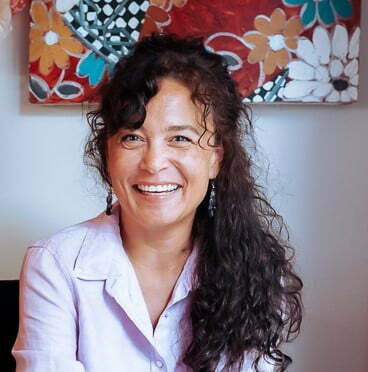
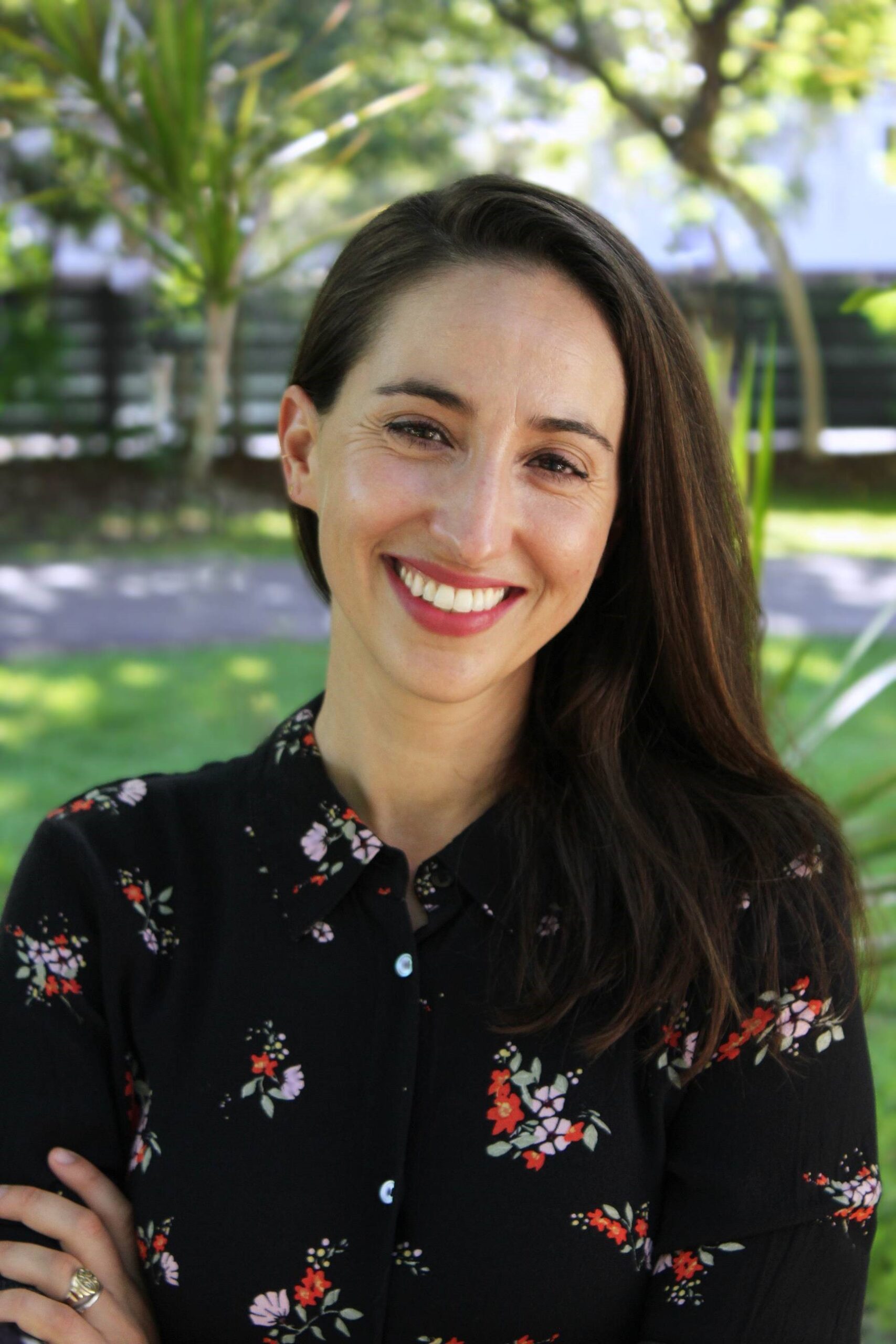
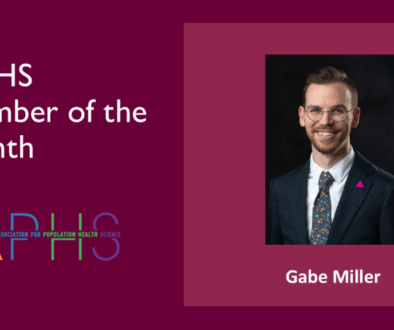
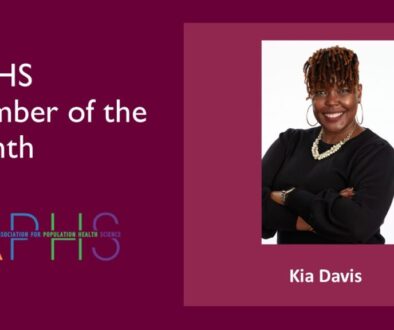

All comments will be reviewed and posted if substantive and of general interest to IAPHS readers.